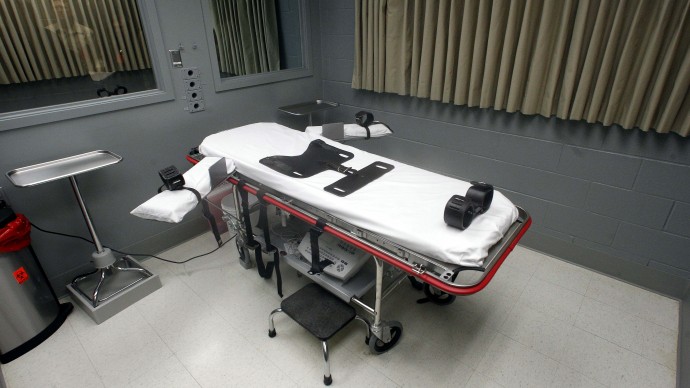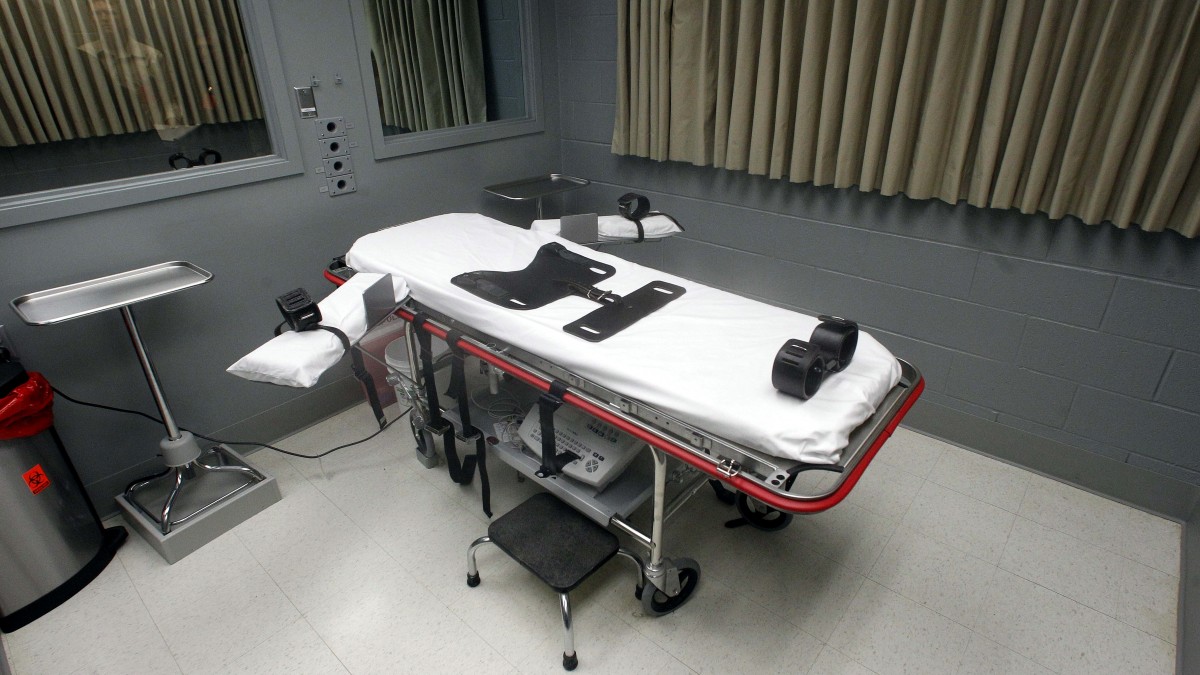
Kimberly McCarthy, an inmate convicted of murder, could hold the dubious distinction of being the 500th person executed in Texas since Gregg v. Georgia, a 1976 decision reinstating the use of the death penalty. She is scheduled to be put to death by lethal injection this Wednesday barring a last-minute stay of execution.
Her case has drawn attention to the vagaries of the death penalty. Most states still have the death penalty on the books, but only a handful carry out the executions with any regularity. For proponents of abolition, the practice is inhumane and applied unequally depending on the race and financial background of those charged.
A spate of recent DNA exonerations has cast further doubt on the practice — as DNA technology develops, hundreds on death row have been cleared of any wrongdoing. In at least 18 known cases, states have sentenced people to death only to find later they were innocent.
Constitutionality of the death penalty
Overall, the public largely favors the death penalty as an appropriate punishment for the worst criminal offenders in society, namely murders. The latest national Gallup poll found that support for the death penalty held relatively stable in 2012 with 63 percent approval across the nation, compared with 61 percent in 2011 and 64 percent in 2010.
McCarthy’s case again raises the question of the constitutionality of the death penalty. For those who believe McCarthy is innocent, the death penalty is a cruel and unusual punishment forbidden by the Eighth Amendment to the U.S. Constitution.
“As it turns out, Kimberly McCarthy is an African American woman scheduled to be the 500th person to be executed in Texas. Her case raises two of the most typical issues in the administration of the death penalty: race discrimination and the quality of counsel,” said Maurie Levin, McCarthy’s lawyer, according to The Guardian.
Those who favor abolition point to the unequal application of the death penalty in cases involving Black and Hispanic people convicted of a crime. According to the NAACP Criminal Justice Project, 41 percent of individuals on death row were African-American. This is despite the fact that these groups constitute just 13.6 percent of the total U.S. population, according to 2012 U.S. Census data.
McCarthy’s legal team also claims that the racial composition of the jury was skewed in favor of the prosecution. The Guardian reports that Dallas County, the area where the trial took place, has a 23 percent African-American population. Despite these demographics, the jury was almost uniformly White, save for one Black juror.
Recent cases involving racial bias have sparked national and international attention, including the 2011 execution of Troy Davis, who many believe was convicted for a murder he did not commit. Davis was convicted in the 1989 murder of a Georgia police officer. Seven of the nine eyewitnesses in the case later recanted their testimonies.
More than 660,000 people from around the world, including Pope Benedict XVI and President Jimmy Carter, urged Georgia’s governor to show mercy.
“My name is Troy Davis and I have been sitting on Georgia’s death row for a crime that I did not commit. It’s been a struggle for me and my family as well as the victim’s family who I sympathize with. They have been cheated out of justice just as I have,” said Davis in 2007.
The disproportionate use of the death penalty in cases involving non-White suspects has led some legal scholars to claim that unequal application of the law also violates the equal protection clause of the Constitution. They argue that state laws must be equally applied to all residents, regardless of race or financial background.
On the other side are death penalty supporters who see executions as an exacting form of justice. The Washington Post reports that Texas Gov. Rick Perry, a Republican, boasted of authorizing 234 executions, more than any other governor in modern U.S. history, at the time of a 2011 campaign rally.
“I’ve never struggled with that at all,” Perry said, referring to execution as “the ultimate justice.”
The American Civil Liberties Union has taken a consistent stand against the death penalty, claiming it is an unconstitutional and inhumane practice.
“The death penalty system in the U.S. is applied in an unfair and unjust manner against people, largely dependent on how much money they have, the skill of their attorneys, race of the victim and where the crime took place. People of color are far more likely to be executed than white people, especially if the victim is white,” the ACLU writes.
The march toward full abolition appears to have picked up pace in the past few years. Maryland became the 18th state to abolish the death penalty in March, the sixth state in as many years to do so.
Human Rights Watch reports that Maryland Gov. Martin O’Malley, a Democrat, signed a bill May 2 abolishing the state’s death penalty and replacing it with life in prison without the possibility of parole as the harshest punishment.
It’s a trend in keeping with the majority of countries in the world that have already abandoned the death penalty. A comparison shows that the U.S. is among only a handful of liberal democratic countries that continues the practice.
Amnesty International, an international human rights organization with 3 million members worldwide, “opposes the death penalty in all cases without exception, regardless of the nature of the crime.”
In its annual report on “Death Sentences and Executions” across the world, Amnesty International reports that the U.S. remained on the short list of countries that carry out executions with regularity, with most others being autocratic regimes. Leading the world in confirmed executions last year was Iran with 314, followed by Iraq with 129, Saudi Arabia’s 79, the U.S. with 43 and Yemen with 28. China is believed to be among the world leaders in executions, but reliable estimates are not available.
DNA exonerations
Beyond moralistic considerations lies an unpleasant reality that prosecutors and the public are only beginning to confront: The U.S. has condemned innocent people to death and has executed those who are completely innocent.
Since the U.S. Supreme Court reinstated the death penalty in 1976, states have carried out 1,336 executions.
The Innocence Project, a project of the the Benjamin Cardoza School of Law at Yeshiva University, has been using DNA evidence to exonerate innocent people from death row.
As of this week, 309 exonerations were recorded, 171 of which the Innocence Project helped clear. Eighteen people had been sentenced to death before DNA proved their innocence and led to their release. The average sentence served by DNA exonerees has been 13.6 years.
The Innocence Project continues to free those who are innocent. Calvin C. Johnson Jr. was freed in 1999, one of the early success stories of the Innocence Project. He served 16 years in prison for a rape that he did not commit.
“You walk out of prison 16 years later because you were locked up for something you didn’t do and you’re like a baby in a brand new world with nothing, not even a diaper on,” he said. “You have to depend on everybody else to get you what you need just to get started and that’s hard.”
The Innocence Project says that only about 60 percent of exonerees receive some kind of compensation when they return to civilian life. The transition can be difficult after so many years behind bars.
“I remember little things like even paying bills helped to make me feel normal because I said, ‘wow I really just like everybody else now.’ For many years I just felt like I was wasting away, not being able to fulfill my potential,” Johnson Jr. said. “Think about it. Sixteen years of your life. I missed the ‘80s man, I missed the ‘90s — those are good years, I missed it,” he said.


